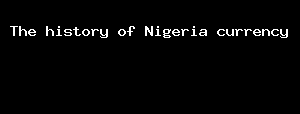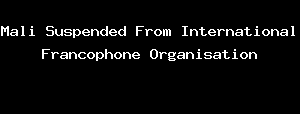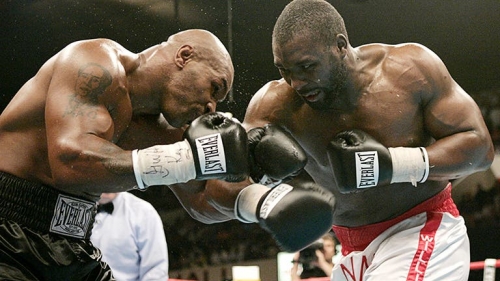News And PoliticsCommunications And EntertainmentSports And FitnessHealth And LifestyleOthersGeneralWorldnewsBusiness And MoneyNigerianewsRelationship And MarriageStories And PoemsArts And EducationScience And TechnologyCelebrityEntertainmentMotivationalsReligion And PrinciplesNewsFood And KitchenHealthPersonal Care And BeautyBusinessFamily And HolidaysSportsStoriesIT And Computer ScienceRelationshipsLawLifestyleComedyReligionLifetipsEducationMotivationAgriculturePoliticsAnnouncementUSMLE And MedicalsMoneyEngineeringPoemsSocial SciencesHistoryFoodGive AidBeautyMarriageQuestions And AnswersHobbies And HandiworksVehicles And MobilityTechnologyFamilyPrinciplesNatureQuotesFashionAdvertisementChildrenKitchenGive HelpArtsWomenSpiritualityQuestions AnsweredAnimalsHerbal MedicineSciencePersonal CareFitnessTravelSecurityOpinionMedicineHome RemedyMenReviewsHobbiesGiveawayHolidaysUsmleVehiclesHandiworksHalloweenQ&A
Top Recent
Loading...
You are not following any account(s)
profile/3199PSX_20200929_184209.jpg
Isamac

The History Of Nigeria Currency
~2.8 mins read
During the pre-colonial era, different cultures used a variety of items as means of exchange. These included cowries, manilas, beads, bottles and salt amongst others.
The first major currency issue in Nigeria was undertaken sequel to the colonial ordinance of 1880 which introduced the Shillings and Pence as the legal tender currency in British West Africa. The units of coins managed by the Bank of England were one shilling, one penny, 1/2 penny and 1/10 penny and were distributed by a private bank, the Bank for British West Africa till 1912.
From 1912 to 1959, the West African Currency Board (WACB) issued the first set of banknotes (insert hyperlink) and coins in Nigeria, Ghana, Sierra Leone and the Gambia. The highest banknote denomination was one pound, while the one shilling coin was the highest coin denomination.
On 1st July, 1959 the Central Bank of Nigeria (CBN) issued Nigerian currency banknotes, while the WACB-issued banknotes and coins were withdrawn. It was not until 1st July, 1962 that the currency was changed to reflect the country’s republican status. The banknotes which bore the inscription, ’FEDERATION OF NIGERIA‘, now had, ‘FEDERAL REPUBLIC OF NIGERIA’, inscribed at the top. The notes were again changed in 1968 following the misuse of the currency banknotes during the civil war.
Sequel to the decision by the government to change from the metric to decimal, the name of the Nigerian currency was changed in January, 1973. The major unit of currency which used to be £1 ceased to exist and the one naira which was equivalent to ten shillings became the major unit, while the minor unit was called the kobo; hundred of which made one naira.
On 11th February 1977, a new banknote with the value of twenty naira (₦20) was issued. It was the highest denomination introduced at the time as a result of the growth of the economy; the preference for cash transactions and the need for convenience.
The banknote was the first in Nigeria to bear the portrait of a prominent Nigerian citizen, the late Head of State, General Murtala Ramat Muhammed (1938-1976) who was the torch bearer of the Nigerian Revolution in July, 1975. The note was issued on the 1st anniversary of his assassination as a fitting tribute to a most illustrious son of Nigeria. He was declared a national hero on 1st October 1978.
On 2nd July, 1979, new currency banknotes of three denominations, namely ₦1, ₦5 and ₦10 were introduced. These notes were of the same size i.e. 151 X 78 mm as the ₦20 note issued on 11th February, 1977. In order to facilitate identification, distinctive colours were used for the various denominations. The notes bore the portraits of three eminent Nigerians, who were declared national heroes on 1st October, 1978. The engravings at the back of the notes reflected various cultural aspects of the country.
In April 1984, the colours of all the banknotes in circulation were changed with the exception of the 50 Kobo banknote to arrest the currency trafficking prevalent at the time. In 1991, the 50K and ₦1 were both coined.
In response to the expansion in economic activities and to facilitate an efficient payments system, the ₦100, ₦200, ₦500 and ₦1000 banknotes were introduced in December 1999, November 2000, April 2001 and October 2005 respectively.
On 28th February, 2007, as part of the economic reforms, ₦20 was issued for the first time in polymer substrate, while the ₦50, ₦10 and ₦5 banknotes; as well as ₦1 and 50K coins were reissued in new designs, and the ₦2 coin was introduced.
On 30th September, 2009 the redesigned ₦50, ₦10 and ₦5 banknotes were converted to polymer substrate following the successful performance of the ₦20 (polymer) banknote. Thus, all lower denomination banknotes were now printed in the polymer substrate.
Finally, the CBN, as part of its contribution towards the celebration of the nation’s 50th anniversary of Nigeria’s Independence and 100 years of its existence as a nation, issued the ₦50 Commemorative polymer banknote on 29th September, 2010; and the N100 Commemorative banknote on 19th December, 2014 respectively.
Please like and comment
profile/5285jenstro.PNG
Xarmmytip

Mali Suspended From International Francophone Organisation
~1.0 mins read
profile/3045tmp.jpg
Timifrank

The Department Of State Services Has Denied Arresting And Detaining Some Nigerians On The Orders Of Some Powerful Citizens
~1.8 mins read
The Department of State Services has denied arresting and detaining some Nigerians on the orders of some powerful citizens.
The secret police said that it has been following the Standard Operation Procedure on the Criminal Justice Administration.
The DSS was reacting to a comment by a former media aide to the late President Umaru Musa Yar’adua, Olusegun Adeniyi.
Adeniyi had in his column titled: â€Beyond Abba Kyari’s indictment†published on Thursday said hundreds of innocent citizens are currently languishing in police and State Security Services†detention centres following arrests ordered by powerful men and women.
However in a reaction by the spokesman of DSS, Peter Afunanya, on Thursday, said he couldn’t speak of for other security agencies but for the DSS, nothing of such exist.
He said, †Mr Olusegun Adeniyi, without efforts to join issues with you on an opinion expressed by you in your article of August 5, 2021 on the above subject matter, the SSS takes exceptions to the part that states that “Hundreds of innocent citizens are currently languishing in Police and State Security Services detention centres across the country, following arrests ordered by powerful men and womenâ€.
â€This is not true. I do not speak for the Police but it is certain that no Nigerian or anyone for that matter is in the SSS/DSS custody on the order(s) of private citizens or persons. The SSS has an Standard Operation Procedure on the criminal justice administration.â€
Afunanya, however, demanded immediate withdrawal of the statement made by Adeniyi, noting that security agencies deserved to be praised, respected and supported by the citizens.
He said, â€The media owes a duty, propelled by good conscience and common good, to guide public narratives about some government agencies and their sacrifices to uphold security, peace and unity of this nation, Nigeria.
â€The SSS should not be run down given the slightest opportunity. You had been at the commanding heights of governance and national security administration and management to understand issues so as not to misinform the public.
â€It is unacceptable for a respectable columnist of your experience and status to make a sweeping statement like the one herein. It is misleading, inciting, denigrating, demeaning, misinforming and should be withdrawn.
â€The SSS and indeed security agencies, if not praised, should be supported. The Organisation may not be perfect but it is doing so much for the Country. It respects and loves the citizens and residents and strives to serve them based on best practices, rule of law/engagement and a balance between rights and national security.â€
profile/93871595323739410.jpg
Emmaximus123

Danny Williams: Beating Mike Tyson Was A Dream Come
~4.4 mins read
Dad’s death lowest point of his career
Danny Williams, 47, was born British. He is a retired heavyweight boxer whose exploits in the ring made him one of the most popular British boxers of his day. Right now, Williams has called time with boxing. Except, perhaps, until he is called to assist younger and aspiring boxers at clinics as an instructor, the former British heavyweight champion says he has nothing left to offer in the fistic art of self-defence. “My boxing career is over,†he declared.
Born to a Jamaican mother and a father of Nigerian descent, the retired boxer feels that at his age, even though he has called it quits from boxing, he still has a hidden talent which is yet to be explored to the full. What he intends doing is far from the boxing ring. He wants to go into a new field altogether.
“I want to go into acting,†he said.
Acting may not be entirely new to Williams. In a telephone chat with Sports Vanguard, Williams boasted of a profitable stint in acting even before quitting boxing. He told us that he played a key role in a movie that turned out to be a thriller, a blockbuster which was rated 4th in Turkey at the time. He said a boxing agent took him to Turkey to play the role of a boxer in the movie.
Danny Williams’ Nigerian background remains hazy as he could neither name his state nor which of the Nigerian tribes his roots originated from. “My father told me his grandfather came from Nigeria and from available information, my paternal grandmother too was Nigerian,†Danny disclosed, adding, “my father’s name is Augustus Williams.â€
When we pressed for details about his Nigerian background, the former boxer said, “He didn’t give me those details you are asking for. I don’t have the information you are asking me.â€
What happened to the other arm? We asked.
“It dislocated, so I began to use my left hand and, to God be the glory, I was able to knock him out.’
After the dramatic win over Potter, Williams was laid off due to injury. He recovered after six months to record another 32-second knockout over the respected opponent – Kali Meehan and then avenged his defeat to Francis, stopping the 36-year-old on an eye injury in the 4th round.
As a reward for hard work, Williams was signed by Don King and ended 2001 knocking out US journeyman Shaun Robinson. His tenure under King would prove to be uneventful, and they parted ways at the end of 2002.
In February 2003 Williams fought Turk champion Sinan Samil Sam for his European heavyweight title in Germany. Surprisingly Williams dropped three times and was stopped in six rounds.
He returned with a fourth-round stoppage of Australian Bob Mirovic to retain his Commonwealth title, then knocked out Michael Sprott in five rounds to defend his British & Commonwealth titles.
In 2004, Williams re-signed with Frank Warren, then lost his British and Commonwealth titles in a third meeting with Michael Sprott via a disputed close points decision.
Till date, Williams is insisting he was robbed of victory “I lasted a few years as heavyweight champion and I got robbed. Everybody thought I won the fight but I got robbed.â€
After two comeback knockout wins, Williams boxed former world champion Mike Tyson who was a phenomenon and the likes of Danny Williams grew up watching him fight. Tyson was first demystified by Buster Douglas via a shocking knockout. When Tyson staged a comeback in 2004, Danny Williams had already become a household name in the heavyweight class in Europe and in Britain in particular.
The fight against Tyson held in Freedom Hall State Fairground, Louisville, Kentucky. After staggering Williams numerous times in the first round, Tyson began to tire in the fourth round, when Williams threw a torrent of punches, he forced Tyson to go down. Tyson was counted out sitting with his back to the ropes and made no attempt to get to his feet while looking up at the referee. He had to be helped to his feet because, as was later discovered, he left the ring with a torn ligament in his leg.
I beat Tyson via 4th knockout and that remains the greatest victory of my career as a boxer,†Williams recalled.
How was it like beating Tyson, who, to the average fan, was boxing personified?
“It was an unbelievable feeling. I grew up watching Mike Tyson. He was a wonderful fighter and a fantastic boxer,†he said, but added, “I must confess that I may not have been able to beat him when he was at his peak. I know I couldn’t have had a chance against him. But again, here in the ring was a man who was a phenomenon with a tremendous past.
He was an amazing fighter and I felt that pride and satisfaction that I shared the same ring with him and, for the records, I came out victorious via knockout. It was a dream come true.â€
After the fight against Tyson, Danny Williams’ career took a dive into oblivion, In December he finally challenged for a world heavyweight title, but Vitali Klitschko proved too much, as Williams was stopped in the 8th round.
“I had a shot at the world title against Vitalis Klitschko and I lost that fight. After that my career went down.â€
Williams, who was called the Brixton Bomber said his loss to Klitschko forced him to retire.
“I took a lot of punishment from Klitschko and in boxing, punishment from a lot of punches makes you age fast. After that fight, I felt I couldn’t continue and I stopped fighting.â€
After hanging his gloves, Danny Williams said he is not finished yet. He has decided to dust his acting garments and join the fray as a Nollywood actor.
Loading...
 Isamac
Isamac
 Timifrank
Timifrank
 Emmaximus123
Emmaximus123